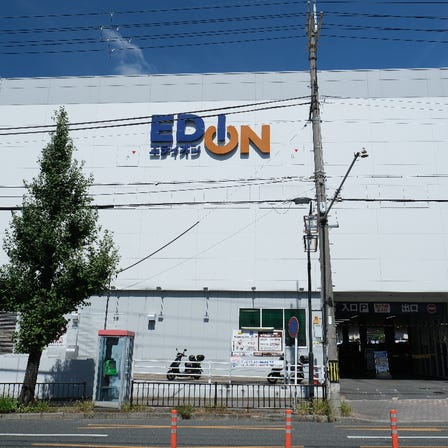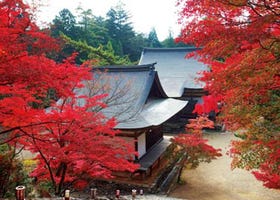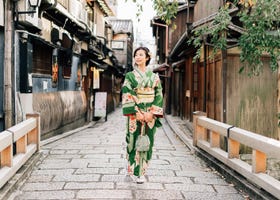Description
Established by the 59th Emperor Uda in 888, Ninna-ji Temple was also called ”Omuro gosho” because the emperor built priests' living quarters called ”omuro” after he entered the priesthood. Until the Meiji Restoration, the temple served as the head of Monzeki Temples whose head priest was a member of the Imperial Family. The temple suffered serious damage from fire during the Onin War, but was rebuilt 160 years later in the Edo period thanks to the help of the third Tokugawa Shogun, Iemitsu. The current five-story pagoda and Nio-mon gate have remained unchanged since the reconstruction. If you're visiting in spring, don't miss the temple's late-blooming, short-statured cherry trees called ”Omuro-zakura.” Planted during the Edo period, these famous trees are music to the eyes. The temple joined the register of UNESCO World Heritage sites in 1994 as one of the Historic Monuments of Ancient Kyoto.
The late blooming Omuro-zakura showcases the end of spring in Kyoto
Planted in the northwest area of the Chu-mon gate, Omuro-zakura create a tasteful atmosphere unchanged since the Edo period. This late-blooming cherry tree is also known for its low height. The scenery combining the five-story pagoda with blooming Omuro-zakura is just exquisite, making it an official national site of scenic beauty and earning it a place among the 100 best sakura viewing points in Japan.
Priceless temple treasures revealed twice a year at Reihokan
Reihokan holds many temple treasures, including the statue of Amida Sanzon, the principal image in the temple at the time of its founding. The exhibits cover a vast range of objects from Buddhist statues to sculptures, paintings to crafts to books and more. With its 12 National Treasures (88 items), 47 Important Cultural Properties (1,678 items), and ancient documents, the number of items in the collection exceeds 100,000. Pieces from the collection, including National Treasures and Important Cultural Properties, are displayed during special-themed exhibitions held twice a year in spring and autumn.
Visit temples enshrining Kobo Daishi in Omuro’s Eighty-eight Sacred Places
On Mt. Joju, situated in the northwest part of the grounds, you can experience a pilgrimage called ”Omuro's Eighty-eight Sacred Places” that re-creates Shikoku's Eighty-eight Sacred Places in miniature. The three-kilometer mountain trail is lined with temples that enshrine the spirit of Kobo Daishi. It takes two hours to visit all these temples, called fudasho (temples where amulets are collected), and fulfillment of the wishes you prayed for at all the temples brings one the same benefits as those when one completes the pilgrimage around Shikoku's Eighty-eight Sacred Places. From May to November, you can collect stamp impressions along the ”Ninna-ji Temple and Mt. Joju Eighty-eight Walk” for a fee.
Create unforgettable memories at Ninna-ji Temple
In the grounds of Ninna-ji Temple is shukubo, a temple lodging for visitors and pilgrims. Staying at the shukubo gives you the opportunity to enter the temple's main pavilion and join the morning gongyo (devotional exercises) in the Kon-do Hall—experiences not available to the general public. What's more, you can enjoy a quiet stroll through the temple grounds (except for some facilities) after the morning gongyo before sightseers arrive. Meals are the time to sample the delicious Kyo kaiseki (Kyoto's traditional local cuisine), where you'll enjoy seasonal ingredients at dinner and shojin cuisine (Buddhist vegetarian cuisine) at breakfast.
Location Information
-
- Address
-
33, Omuroouchi, Ukyo-ku, Kyoto-shi, Kyoto, 616-8092
-
- Nearest Station
-
Omuroninnaji Station
・ Keifuku Dentetsu-kitano Line
3 minutes on foot
-
- Phone Number
-
075-461-1155Available languagesonly in Japanese
-
- Hours
-
9:00am - 5:00pm
*From March to November
9:00am - 4:30pm
*From December to February
-
- Closed
- None
-
- Public Site
- Official Site
Recommended Spots in Area
- Visiting
- Shopping
-
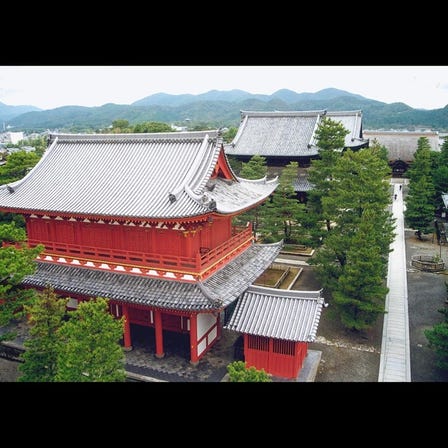 Myoshin-ji TempleArashiyama, UzumasaTemples
Myoshin-ji TempleArashiyama, UzumasaTemples -
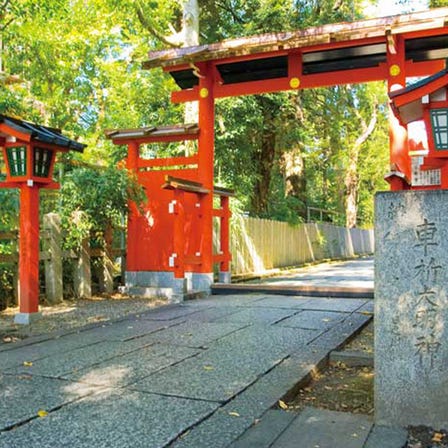 Kurumazaki-Jinja ShrineArashiyama, UzumasaShrines
Kurumazaki-Jinja ShrineArashiyama, UzumasaShrines -
 Hirano Jinja ShrineKinkakuji Temple, KitayamaShrines
Hirano Jinja ShrineKinkakuji Temple, KitayamaShrines -
 Kitano Tenman-gu ShrineKinkakuji Temple, KitayamaShrines
Kitano Tenman-gu ShrineKinkakuji Temple, KitayamaShrines -
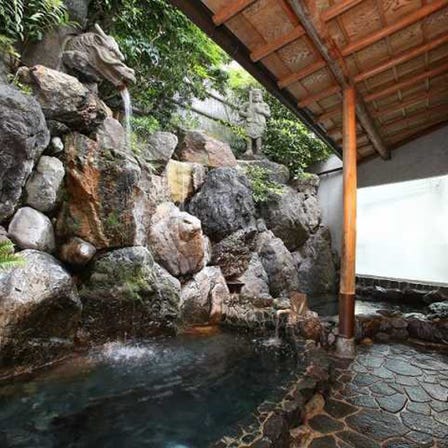 Funaoka OnsenKinkakuji Temple, KitayamaHot Springs (Onsen) & Bath Houses (Sento)
Funaoka OnsenKinkakuji Temple, KitayamaHot Springs (Onsen) & Bath Houses (Sento) -
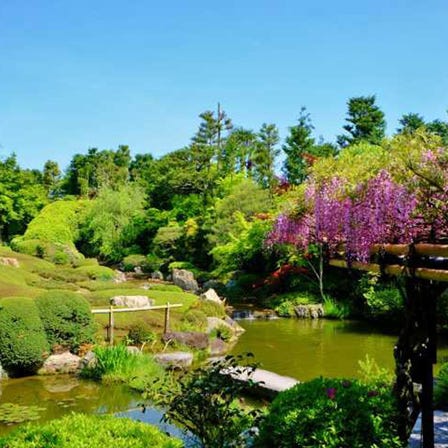 Taizo-in TempleArashiyama, UzumasaTemples
Taizo-in TempleArashiyama, UzumasaTemples



















